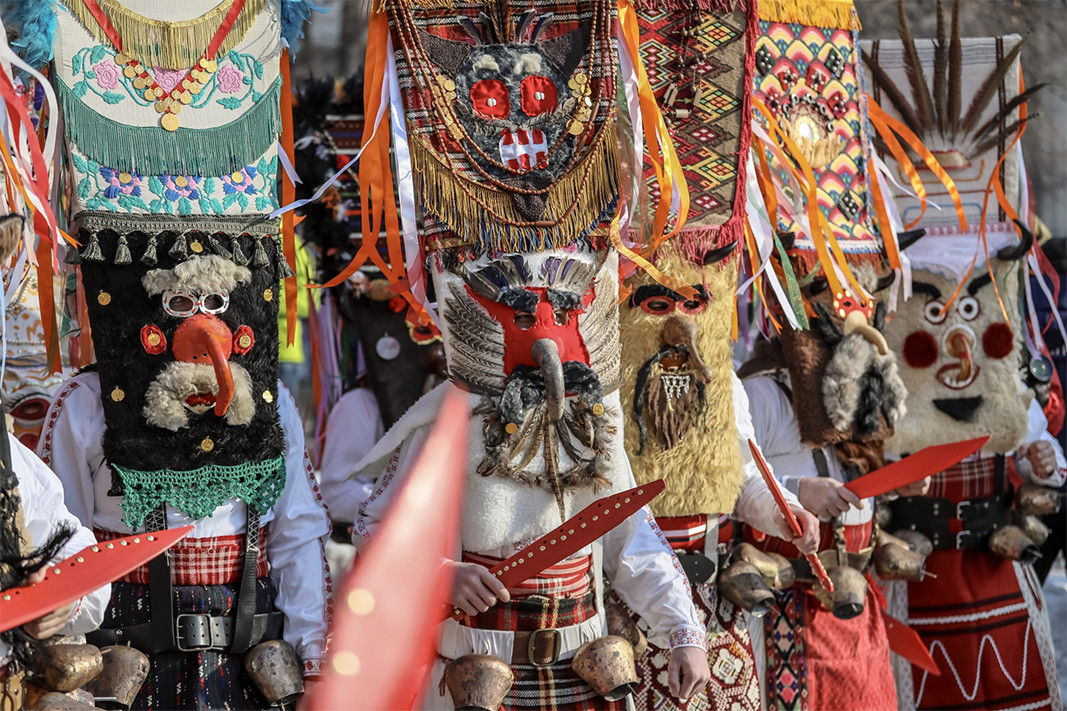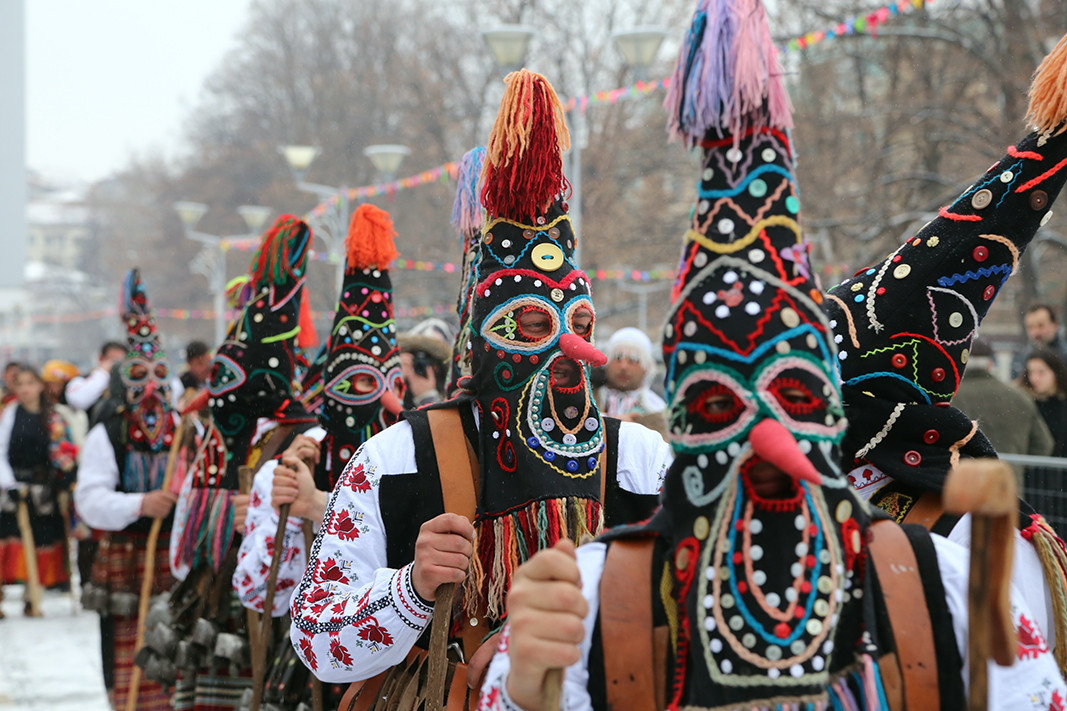Surva is here! After a three-year hiatus due to the pandemic, Kukeri, Chaushi, Arapi, Babugeri and other fairytale characters will once again chase the evil forces with a bang. The long-awaited festival of masquerade games will be held from January 27 to 29 in the Bulgarian town of Pernik.
Traditionally, the folklore festival takes place every year on the last Saturday and Sunday of January. But due to the great interest, this year's 29th edition will last three days instead of the usual two.

Over 1,700 participants will flock to the central town square. They will demonstrate ancient Bulgarian customs that are still alive today and are an important part of the Bulgarian folklore tradition. 15 masquerade groups from abroad will also perform - from Greece, Romania, Serbia, Italy, Slovenia, Albania, North Macedonia, Montenegro and Croatia.
The program will start on the morning of January 27 with the children's "Survakariada". Students from schools in Pernik will participate in it. An international scientific conference is planned for the first day of the festival, focusing on the theme "Masks, festivals, museums". At noon, the parade of 21 masquerade groups from all over the country will begin, Kristiyan Petrov, PR in the municipality of Pernik, explained for BNR. And more:

"Visitors will see the full colour of all the ethnographic regions of Bulgaria, also from the Balkans and Central Europe. We have also prepared an extremely interesting accompanying program. For the first time, guests will be able to enjoy the festival from specially built stands for over 1,500 people. In addition, they will be able to watch it on the large video walls located in the central town square. We have also provided an opportunity for people to treat themselves to traditional winter dishes and drinks, there will also be many typical souvenirs, as well as artisans' stands. And the official opening ceremony is scheduled for Friday at 6 p.m., when we invite guests to enjoy a spectacular show based on local folklore, but with a modern reading. There will be audiovisual effects, 3D mapping, pyrotechnics and other emotions.”
The winter custom "Surva" is part of the list of UNESCO's intangible cultural heritage. And what makes the Surva Festival in Pernik an almost magical experience are the ancient rites and rituals that come to life in the town square in the context of our modern technological world.

The tradition is very much alive and indestructible, claims historian Dimitar Trenchev, chairman of K.O.R.E.N.I. (from the village of Kolarovo, Petrichko). To this day, there is a leading character in the street procession, who, depending on the region, is called differently:
"These are different names for the same main character in the winter masquerade ritual," explains Dimitar Trenchev. „Will he be a survakar from the region of Pernik, Graovo, Breznik, or will he be a babuger in the area of Petrich and Sandanski, will he be a jamalar on the other side of the Mestra River, the leading character in this masquerade magic brings the blessing. And after him come all the other characters, such as the camel with the camel driver, because the camel is known for its endurance, especially in difficult years as there always have been. Then comes Jamala, and then Grandma Bear with the bear master. Why Grandma Bear? Because just as she can sleep, when she wakes up, she calls the sun. And when the sun is very fast asleep, especially on a dark rainy day, she grabs him and wakes him up.''
Read more:
According to popular belief, the color red has the power of the sun and gives vitality to every living being, while white symbolizes purity, innocence and joy . The appearance of the twisted white and red threads, known as martenitsa, means that winter..
The Philip Koutev National School of Folk Arts is not just any school - it is a talent laboratory. It is the first school not only in Bulgaria but in the Balkans for professional study of folklore. It is located in the heart of the beautiful town of..
Scientists from the Sorbonne will study the cultural heritage preserved in the Regional Ethnographic Open-Air Museum "Etar" , informs public broadcaster BNT. In March this year the French scientists together with experts of REOM "Etar" will study elements..

+359 2 9336 661
